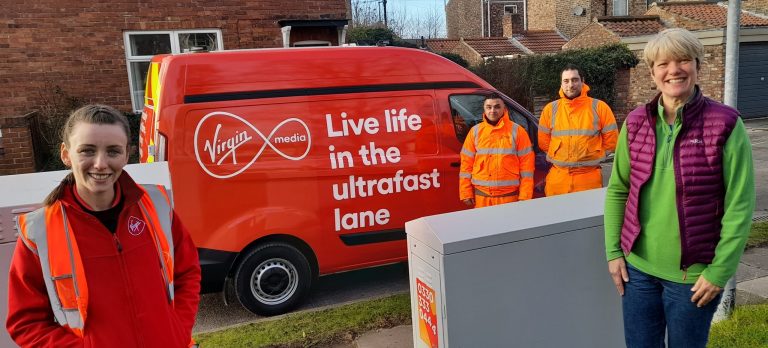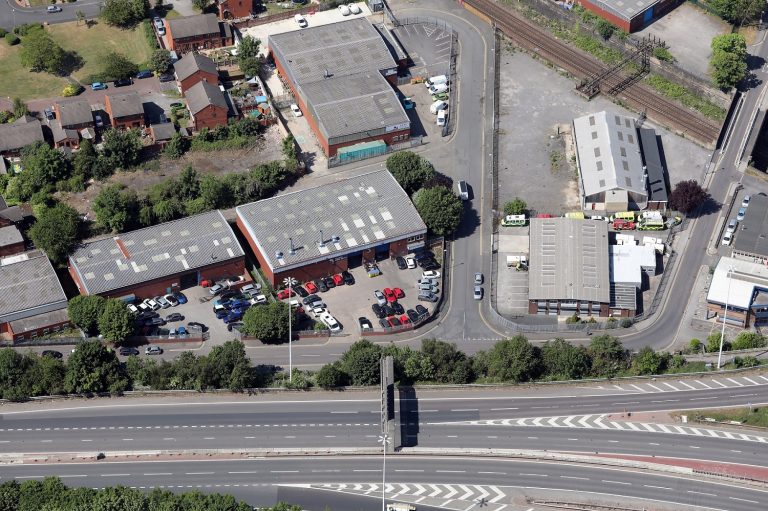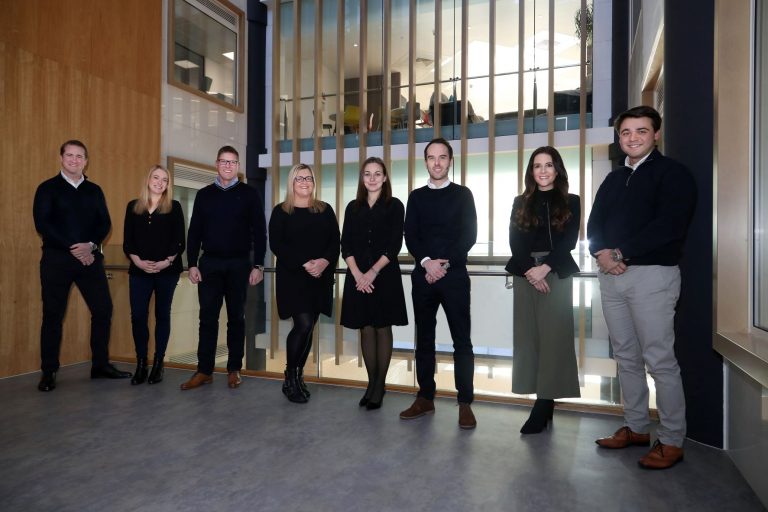Virgin Media O2 joins forces with City of York Council to tackle vandalised cabinets
City of York Council has joined forces with Virgin Media O2 to tackle vandalised broadband cabinets in the area.
Through a new trial, Virgin Media O2 has committed to working directly with City of York council to repaint vandalised cabinets and bring them back to their original state.
It is the first deal of its kind Virgin Media O2 has done with a local authority to help tackle the issue. Throughout the six-month trial, the organisations will work together to restore cabinets across the city, where up to 200 cabinets are vandalised every year.
To kickstart the scheme, damaged cabinets are being repainted and new cabinet stickers will be applied, making it easier than ever for local people to report damaged or vandalised cabinets. It is anticipated this will help speed up incident reporting and reduce the number of cabinets that are vandalised.
Cllr Paula Widdowson, Executive Member for Environment and Climate Change, at City of York Council, said: “We are really pleased to be able to join forces with Virgin Media O2. To be part of the first deal of its kind with them is important to us and it places us at the very forefront of tackling vandalism and graffiti.
“Graffiti is criminal damage and a selfish act which spoils the local environment for residents and visitors alike. We hope this sends a clear message that we will not tolerate this type of vandalism. Following the trial, we hope to roll this partnership out further and are already in constructive talks with several other companies.”
Paul Edwards, Director of Field Engineering & Operations at Virgin Media O2, said: “Through this innovative trial with City of York Council, we hope to make it faster and easier to remove graffiti from our on-street cabinets. Damage to our cabinets and equipment can cause customers to lose the vital services they rely on, so we’re committed to tackling this problem and keeping our customers connected.”
A green future: North Lincolnshire Council pledge to be net-zero trailblazer by 2030
North Lincolnshire Council will end its contribution to climate change and become carbon neutral by 2030.
The pledge comes as part of a new policy set to be approved at the council’s Cabinet meeting today, Monday 24 January.
The ‘Green Future’ proposals are designed to enable the council, together with residents and businesses, to make positive changes to create a cleaner, greener, healthier and more sustainable North Lincolnshire.
Cllr Rob Waltham, leader of North Lincolnshire Council, said: “This is one of the most important pieces of policy we will be responsible for – it sets a vision which will protect North Lincolnshire now and for future generations.
“We already have an enviable track record when it comes to protecting and enhancing the environment; slashing our carbon emissions in the last decade, planting over 85,000 trees and re-establishing vast areas of urban wildlife habitats – but we can and will go further.
“It embeds environmental protections and enhancements into everything we do and across all that we are responsible for – and is designed to protect and create jobs, taking advantage of new green technologies and the emerging industries.”
The new policy is designed to enable every part of the council, each resident and community, together with all businesses, to play an active and involved role in achieving the best possible environmental outcomes for North Lincolnshire.
In a consultation, 99 per cent of respondents agreed with all the aims set out, which are designed to achieve decarbonisation, environmental protection and enhancement, personal wellbeing and economic growth.
Cllr David Rose, cabinet member for environment, said: “This touches every single community, every single business and every single resident.
“It recognises we all play our part in making our area a cleaner, greener, healthier and more sustainable and attractive place to live, work and visit.”
From 2009 the council reduced its carbon footprint by more than 60 per cent, making savings of £12m in the process. In 2019 alone £1m a year in savings was made from its energy bills through a variety of projects, including replacing every streetlight with low cost, energy efficient LEDs.
The new policy is developed across four themes; net zero and sustainable energy, resources, waste and water management, natural environments, a shared responsibility and vision.
Econ gritters helping keep London’s roads ice and snow free
Three contractors that have been awarded framework agreements to keep London’s roads ice and snow free have turned to Yorkshire-based Econ Engineering to supply them with their gritters.
And for the next seven years, 33 Econ vehicles, will be located at different points within the capital city, ready to mobilise as soon as temperatures plummet.
Two years ago, Transport for London (TfL) tendered three new area contracts, Central, North and South, for their Highways Framework. This replaced the previous seven-year agreement which covered four areas, South, Central, North-East and North-West.
In October 2020, TfL awarded the Central contract to Ringway; the North contract to a Tarmac and Kier Joint Venture, with FM Conway awarded the South contract. The combined value of all three contracts is estimated to be worth £1.4bn.
Over the last 12 months, the Econ team entered negotiations with all three contracting companies, to determine how it could help support their requirements for winter maintenance vehicles.
Econ Engineering – which has its main manufacturing base in Ripon, North Yorkshire and has recently opened two engineering hubs in Alloa, Scotland, and the Welsh capital of Cardiff – produces 85 per cent of winter maintenance vehicles seen on the UK’s roads.
Ringway has purchased 11 brand-new gritters, with all of the vehicles signed up on an eight-year repair and maintenance contract – giving the customer peace of mind during the winter with Econ’s premium service cover.
The Tarmac/Kier JV has hired 13 gritters through Econ’s own Contract Hire Fleet Services. All of these gritters will be run on HVO (hydrogen and Hydrotreated Vegetable Oil) fuel from day one to reduce their carbon footprint. HVO fuel is made from renewable and sustainable raw materials, it can be used in any diesel engine and is 90 per cent cleaner than using pure red or white diesel.
FM Conway has hired nine gritters. Following a successful trial of AWT’s Tracking and Navigation system, it was also decided to have the vehicles fitted with this market leading equipment. The FM Conway team completed designing the new routes using the Map A Route (MAR) system showing them the route length, route efficiency and anticipated loads allowing them to select the right vehicle for each route.
All vehicles are also equipped with Direct Vision Standard (DVS) 360 degree visibility. This means that they are compliant with TfL’s safety permit guidance – utilising a five camera system allowing for better safety for all road users – including cyclists.
Jonathan Lupton from Econ Engineering said: “We are delighted to have been chosen by all three TfL contractors as their winter maintenance vehicle partner of choice.
“This is a significant contract award for us and demonstrates our standing within the highways and transports sector.
“For more than 50 years, Econ has become an industry leader in the manufacturing of gritters, and our vehicles are used by councils, highways agencies, and road contractors the length and breadth of the UK.
“In addition to selling gritters, we also have an extensive hire fleet, and two of the three TfL framework contractors have chosen to go down this route.”
TfL said: “For the next seven years the three contractors will be ensuring our roads are kept open whatever the weather conditions. And for their part, they have chosen Econ Engineering to supply them with the necessary vehicles to ensure they fulfil their contractual obligations.”
Modern Milkman agrees 6,870 sq ft lease in Holbeck
Modern Milkman has taken a five-year lease of Unit 2, New Princess Street, Leeds – owned and managed by Brighouse-based commercial and industrial lettings specialist and landlord, Towngate PLC.
The Lancashire-born Modern Milkman is a network of milkmen and women that delivers fresh daily essentials from independent dairies and suppliers to homes across the country.
Launched in 2018 by four friends — in response to the plastic waste crisis highlighted in Sir David Attenborough’s ‘Blue Planet’ — this modern take on the traditional milk round reuses glass bottles while utilising the latest mobile technology to provide a seamless ordering process for its customer base. In 2021 alone, the organisation successfully prevented 19,272,763 plastic bottles from entering landfill and the world’s oceans.
Sitting within the popular New Princess Street, the modern industrial unit also benefits from a single storey office space and secure yard facility. Boasting a prominent position adjacent to the M621 and close to Leeds city centre, the new space is in a prime location for the storage and distribution of fresh milk, groceries, and household products to the community.
Remarking on the recent move, Ryan Short, chief operating officer at Modern Milkman, said: “This new Leeds site will add to our ever-growing number of UK distribution facilities and is ideally based.
“The move will increase our ability to bring independently sourced groceries to households across the area via mobile technology — using ‘return and reuse’ packaging which allows us to combat food and plastic waste. We were assisted in the move by Nick Davies at Axis Property Consultancy.”
Tom Lamb, property manager, Towngate PLC, added: “We’re thrilled to welcome Modern Milkman to the unit at New Princess Street. The sustainable business model the team works to is highly commendable in helping to take action against both the economic and climate crises — safeguarding our planet for future generations.
“The Holbeck site should make the perfect home for the warehouse operation, and its prime positioning will be extremely beneficial when distributing supplies.”
Businesses must push their unique branding to be successful
With how many competitors each business has, it can be difficult to carve out a niche and market share. As a business, you must not only be recognisable but also memorable so that people think about your business first when they look into your niche or certain products and services. Creating a great brand identity is a great first step, but it is not always enough. You need to continuously push your brand if you want to be successful. But how can businesses do this?
Leverage Other Business’s Platforms
Your business has likely established visibility on its own platforms such as its website. The one challenge businesses come across when they do this is continuously reaching the same people and their reach is then limited by this. Leveraging other people’s platforms helps a business reach new audiences so it can push its branding to them. One of the most common ways of doing this is guest blogging. Guest blogging is an essential component of content marketing as it broadens your reach and pushes your brand in front of new audiences and potential customers. Another way is cross-posting opportunities on partners’ social media channels. Doing this often can produce the same results (sometimes better) as guest posting.Communicate Your Brand Every Chance You Get
The reason there are so many recognisable brands is because they have been shown to us so many times that we do not have to look twice to know which ones they are. If you think of a popular beverage brand, you are likely thinking of a company whose brand identity is made up primarily of a particular shade of red and white. These large businesses have made this possible by showing us their brands’ visual identities wherever they can. For your business to be this recognisable, you also need to put it in front of people as much as you can. A good way of doing this is ensuring your brand’s colours, fonts, and logos are included in everything from your website and online ads to your brochures and letters. The visual and communicative elements you use should be the best representation and reflection of your business. Working with a brand design agency like Ice House Design can help you come up with the best materials to use in branding. They work with all kinds of businesses to create unique and memorable brand designs. Ice House Design work with you to find the best way to communicate your business’s purpose to the world and to give you an advantage over your competition.Create Shareable Content
Creating shareable content is a great way to reach new audiences on different social media platforms. The best thing about doing this is that you do not have to do the hard work of using the brand yourself as everyone sharing your content does so for you. Get started with infographics as they are very shareable and move on to other types of content. For a business to keep growing, it has to continuously reach out to and attract new customers, and thus the business must always be looking for opportunities to do this. Fortunately, there are lots of ways to do this, and the methods outlined above are just a place to start.National Awards the Next Stop for High-Flying Grantham Business
Staff at leading Lincolnshire sign manufacturer Viking Signs will find out on January 27 if theirs is the UK’s best small manufacturing business.
The Grantham-based firm won a place at the national Make UK Manufacturing Awards when it was named Make UK Midlands & East SME of the Year in October last year.
Managing Director Darren Joint will be at the awards dinner at East Wintergarden, London on Thursday to find out if Viking Signs has won the national award, along with his parents and company founders Simon and Michele Joint.
“Winning the Midlands and East Manufacturing SME of the Year was a fantastic achievement for the whole Viking Signs team,” he said.
“To be considered as a national winner of this prestigious Make UK award is a huge endorsement of all the hard work my team has put in over the last few years and I’d like to take this opportunity to thank each and every one of them!
“We believe that our manufacturing on demand model offers huge advantages in terms of speed, service, choice and contribution to achieving net zero. If being shortlisted and maybe even winning this award gives us a platform to share these advantages with our UK manufacturing peers then it’s a double win for us.”
Since he became MD in 2007 Darren has grown Viking Signs 20-fold and the business now offers the UK’s largest range of safety signs, manufacturing more than 50,000 signs and labels every month on demand, for free next day delivery.
Bathroom brand cleans up with £13m cash injection
A major bathroom brand is set to boost turnover and headcount by 50% and triple its warehouse capacity following a £13million cash injection.
Easy Bathrooms, headquartered in Birstall, is a one-stop-shop for bathroom fittings and fixtures, including baths, showers, mirrors, railings and tiles, employing 670 people across the UK. It sells to consumers through its nationwide store network, as well as to tradespeople, such as housebuilders and hotel developers, under its sister brand Cubico.
Now, with the support of a £13million finance package from Lloyds Bank, the firm is set to open a new, custom-built 330,000 sq ft warehouse in Wakefield. As well as tripling its storage capacity from 15,000 to 60,000 pallet spaces, the move is paving the way for the creation of up to 400 new roles across warehousing, distribution and support functions.
The move comes as Easy Bathrooms celebrates the opening of its 100th store, with its rapid expansion set to boost turnover from £62.3million to £95million year-on-year.
Looking ahead, the firm will continue its store roll-out, initially focusing on the North East and Scotland, and will invest in its in-house design capabilities ahead of a full range refresh. Last year, it opened 32 stores, and it expects to match this rate of growth in 2022.
Laura Green, financial director at Easy Bathrooms, said: “Over the course of the last two years, the home improvement sector has boomed, and we’ve seen demand for our products soar. Like all businesses, we have been pushed to adapt quickly to constantly changing conditions during the pandemic, and for us this meant accelerating our expansion plans to ensure we could keep up with growing customer demand.
“Our new premises gives us the capacity we need to stock the biggest and best range of products for our customers, and help us operate with maximum efficiency unlocking further growth as we move into the new year.”
Mark Butterworth, relationship director at Lloyds Bank, said: “Easy Bathrooms is an instantly-recognisable, trusted British brand, and we are excited to support the team as they embark on this next phase of their growth journey.
“A leading local employer in Yorkshire, they are a prime example of a brand that has expanded at a pace that is impressive, but still sustainable, tapping into market demand without sacrificing the quality they are known for.”
LDC grows Yorkshire team with two hires
Mid-market private equity firm LDC has expanded its team in Leeds with the appointments of Sophie Isaacs as origination manager and Ana-Maria Garaba as investment manager.
Sophie joins from BGF, where she spent three years as an investor supporting the firm with its origination, investment and portfolio management activities. Prior to that, she was a corporate finance manager at Deloitte where she worked on LDC’s investment in leading technology platform NBS.
Ana-Maria has worked for Lloyds Banking Group for five years, most recently as an associate director in the Group’s Strategic Debt Finance team. Before joining that team, Ana-Maria was on Lloyds Banking Group’s Emerging Leadership Programme where she focused on mid-market commercial banking.
The appointments follow a busy 12 months for LDC’s team in Yorkshire, which completed transactions with a combined value of more than £475million in 2021. This includes the firm’s investment in manufacturer of electronic security products and services Texecom, and its exits of steel framing provider Sigmat and pest control product manufacturer Pelsis.
Looking ahead, Sophie and Ana-Maria will help the team to increase its support for mid-market businesses across the region. The private equity firm recently committed to investing in at least 100 SMEs nationally over the next five years.
Dan Smith, partner and head of LDC in Yorkshire, said: “We are actively looking to support more business leaders across Yorkshire and are excited to welcome Sophie and Ana-Maria to our growing team. Between them, they bring a suite of skills and experience that will help us to deliver on our commitment to back more management teams to realise their ambitious growth plans.”
Pandemic has cost many Yorkshire cities more than half a year’s worth of high street sales
Covid-19 has cost some city and large town centres in Yorkshire more than half a year’s worth of potential takings since March 2020. This is according to Cities Outlook 2022 – Centre for Cities’ annual economic assessment of the UK’s largest urban areas.
Central Leeds is worst affected, losing 39 weeks of sales between the first lockdown and Omicron’s onset. Businesses in Sheffield and Bradford city centres are also among the worst hit. Huddersfield’s city centre lost the fewest weeks of sales (12 weeks) in Yorkshire during the pandemic.
Nationally, Covid-19 has cost businesses in city and large town centres more than a third (35%) of their potential takings since March 2020, with central London, Birmingham, Edinburgh and Cardiff worst affected. Across the 52 city and town centres studied, 2,426 commercial units have become vacant during the pandemic, against 1,374 between 2018 and 2020.
High streets in economically weaker places have been less impacted by Covid-19. Meanwhile in economically stronger places, business closures increased during the pandemic.
This suggests that the Government’s Covid-19 support successfully stalled the decline of many struggling high streets but was less effective in economically stronger places due to higher rents and a lack of custom from office workers.
That said, while stronger city centres have borne the economic brunt of the pandemic, their higher levels of affluence mean that, if restrictions end and office workers return, they will likely recover quickly.
Meanwhile, while government support has sheltered weaker places, it may have simply stored up pain for the future. The report warns that many less prosperous places in Yorkshire face a wave of new business closures this year.
To avoid permanently levelling down prosperous places, policy makers should run campaigns to encourage leisure visitors back when safe to do so and provide part-time season tickets to encourage workers back to the office.
For struggling places, policy makers drafting the Levelling Up White Paper should focus on dealing with struggling places’ fundamental economic problems to address high street decline. This means investing in skills and ways to strengthen the wider local economy to increase money in shoppers’ pockets, rather than on ‘cosmetic’ quick fixes such as hanging baskets and painting shop fronts.
Andrew Carter, Chief Executive of Centre for Cities, said: “While the pandemic has been a tough time for all high streets it has levelled down more prosperous cities and towns in Yorkshire. Despite this, the strength of their wider local economies means they are well placed to recover quickly from the past two years.
“The bigger concern is for economically weaker places – primarily in the North and Midlands – where Covid-19 has actually paused their long-term decline. To help them avoid a wave of high street closures this year the Government must set out how it plans to increase peoples’ skills and pay to give them the income needed to sustain a thriving high street. Many of these places are in the so-called Red Wall so there is a political imperative for the Government to act fast, as well as an economic one.”
| Where have city and town centre businesses lost the most potential sales during the pandemic? | |||
| Rank (Regional) | Rank (National – out of 62) | Place | Weeks of lost sales |
| 1 | 10 | Leeds | -39 |
| 2 | 25 | Sheffield | -31 |
| 3 | 28 | Bradford | -29 |
| 4 | 43 | Doncaster | -24 |
| 5 | 44 | Hull | -24 |
| 6 | 46 | York | -22 |
| 7 | 55 | Barnsley | -14 |
| 8 | 56 | Wakefield | -13 |
| 9 | 60 | Huddersfield | -12 |
| Where have city and town centre vacancy rates changed the most during the pandemic? | |||
| Rank (Regional) | Rank (National – out of 52) | Place | Percentage point change |
| 1 | 21 | Huddersfield | 3.3 |
| 2 | 26 | Leeds | 2.8 |
| 3 | 27 | Hull | 2.8 |
| 4 | 32 | York | 2.7 |
| 5 | 36 | Sheffield | 2.1 |
| 6 | 44 | Barnsley | 1.0 |
| 7 | 47 | Doncaster | 0.3 |
| 8 | 51 | Bradford | -0.2 |
| Where had the highest and lowest shares of vacant city centre units after June 2021 | |||
| Rank (Regional) | Rank (National – out of 52) | Place | Percentage of city centre units vacant |
| 1 | 4 | Bradford | 27.6 |
| 2 | 9 | Hull | 23.8 |
| 3 | 10 | Huddersfield | 23.3 |
| 4 | 18 | Doncaster | 21.4 |
| 5 | 24 | Leeds | 19.6 |
| 6 | 30 | Sheffield | 18.2 |
| 7 | 44 | Barnsley | 13.5 |
| 8 | 49 | York | 11.4 |
Workplace stress and anxiety leads to productivity drop, reveals new employee wellbeing report from Champion Health
A study of 2,200 UK employees has revealed that two thirds of people (67.2%) are experiencing moderate to high levels of stress and that 28% have seen their productivity negatively impacted by high stress levels in the last two years.
Data released today by national workplace wellbeing provider Champion Health gives an insight into the mental health and wellbeing of the country’s working population between April 2020 and December 2021. Champion Health provides an evidence-based wellbeing platform and personalised support to more than 4,000 employees across the UK.
Worryingly, 8% of people shared that they have experienced self-harm and/or suicidal thoughts. The data, which has been published in Champion Health’s annual report also revealed that:
- Around 60% of workers feel anxious and females are more likely to feel anxious (62% female compared to 37% male);
- Almost 60% of workers are experiencing musculoskeletal pain. Of those suffering, 70% are home or hybrid workers, whereas office workers make up just 17% of the sample;
- Workers aged 25-34 are most likely to experience anxiety, depression and financial stress;
- 52% of UK professionals are experiencing symptoms of depression, with around a quarter (22%) being identified as experiencing clinically significant symptoms;
- More than half of respondents say that they feel ‘fatigued” and 53% report that tiredness was impacting their productivity at work;
- The survey showed that people feel most energised to work at 10.22am and are least energised at 3.31pm.












